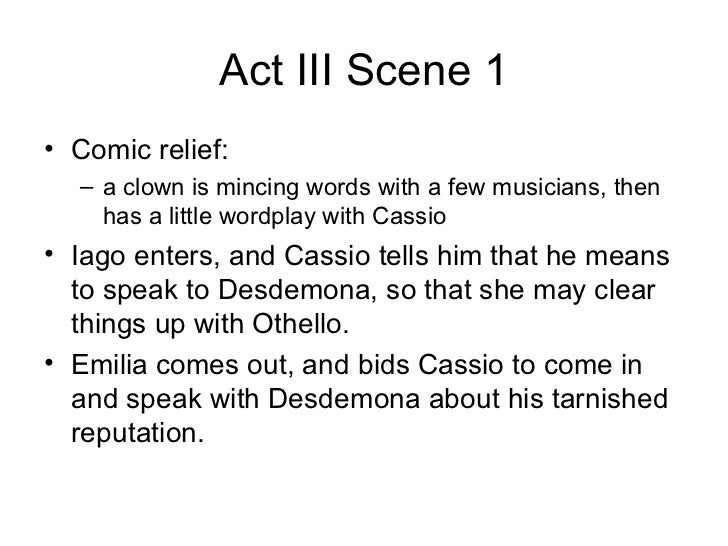

This transition has a major significance to the plot of the play, serving as a turning point that eventuates in the play’s climax. Throughout the act, the transition of Othello from a gentle character driven by love, to a spiteful character driven by jealousy occurs. Othello’s words on Desdemona “O, that the slave had forty thousand lives! One is too poor, too weak for my revenge.” (III.3.489-90), mark this transition in his love for her withering to a desire of revenge for her accused actions of having an affair with Cassio.Īct III, Scene 3 of Othello plays an essential role in retrospect to the entire plot of the play in its importance as a transitional act that grounds the foundations for the play as a tragedy. The play serves as a focal point for Othello’s struggle with feelings of his own inadequacy evoked by his race as a Moor living in a society dominated by white people. In this, the establishment of Othello’s dual nature, spurred by an inner conflict bourn of his love for Desdemona and jealousy of Cassio serves as a major point in the establishment such themes and deeper meanings within the play such as the self-loathing experienced by Othello caused by the alienation and inadequacy he feels from his interaction with the other white characters in the play, as well as for the structure of the play. Through this creation of inner conflict within the character, deeper motives such as alienation caused by race that drive Othello’s conflict with himself can be suggested and recognised.

This dual nature is highlighted in the act when Othello cries “Excellent wretch! Perdition catch my soul,/But I do love thee!” (III.3.100-1). In juxtaposing both Othello’s soft hearted and loving nature for Desdemona with that of the jealous and spiteful Othello evoked by the duplicity of Iago highlights the inner conflict within the Othello that eventuates in his own downfall in the final scene of the play. Shakespeare’s manipulation of language throughout the scene serves to juxtapose the two contrasting natures encapsulated within the character of Othello. In this the scene has significant ramifications for the plot of the play as an entity in the construction of the beginning of the conflicts and tensions between characters that is to eventuate in the plays climax in the death of the noble Othello.

The scene marks the beginning of Othello’s downfall in the transition of the character’s jealousy into rage that marks the transition of the play itself to a tragedy evoked by Iago’s two-faced and deceitful actions that begin to have a major impact on Othello in this scene. The scene generates and develops many ideas and themes essential to the plot of the play through the use of language employed throughout the scene. The scene serves as a turning point for Othello’s jealousy, evoked by Iago’s manipulation of Othello to believe that his wife, Desdemona is having an affair with Cassio, spurring Othello’s jealousy to a murderous rage. Act III, Scene 3 of William Shakespeare’s’ Othello’ is constructed to be a pivotal point in the play in the extension of the development of underlying themes embodied by the play as well as grounding the foundation of newly occurring themes to be introduced into the play.


 0 kommentar(er)
0 kommentar(er)
